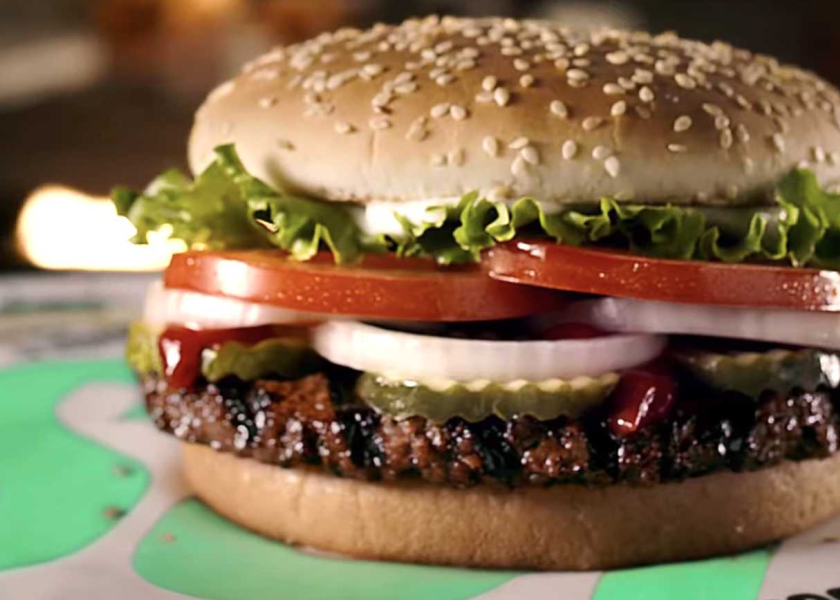Dan Murphy: A Better Climate Calculus

Sure, you can believe that wolfing down an Impossible Burger is the ticket to saving the world from climate disaster. Or, you could recognize there are far better ways to achieve that goal.
Forget just this once the dietary advice to cut down on red meat, while stocking up on all that fresh, imported produce shipped into The States all winter from points south.
Leave aside for the moment the activist imperative to go Full Veggie in order to save the planet.
And put a temporary hold on the conclusions drawn by so many in the media that raising livestock and eating animal foods is the primary cause of climate change.
Yes, dietary choices matter, both in terms of maintaining good health as well as their impact on the environment. But for all the rhetoric about Meatless Mondays and flexitarian diets and alt-meat options, the effect of animal agriculture on levels of greenhouse gas emissions — and thus on the climate crisis — is less meaningful than many other areas where change can and should be made in ways that improve, not disrupt, people’s lifestyles.
Allow me to briefly explore a couple potential game changers that would simultaneously mitigate our eco- and energy-related challenges, while conserving resources and advancing sustainability.
Stopping the waste
The first is reducing food waste.
At best, we treat the horrendous amount of food that rots on the ground or in storage; the mountains of food prepared for consumption that are scraped off plates and into Dumpsters at any catered event you’d care to name; or that’s purchased by consumers only to be eventually tossed in the garbage as merely a by-product of our modern lifestyles.
As if such waste comes with the territory, like winter rain in the Northwest or summer heat in Arizona.
What are ya gonna do?
No — food waste is controllable, if not totally preventable, and it not only represents a loss of food that is needed and would be appreciated by those in need, but it’s a serious waste of energy and resources.
In the United States, USDA estimates that food waste is represents as much as 40% of the total food supply — some 20 pounds per person every month — waste that’s worth more than $160 billion … and that was in 2010!
Put another way, we collectively waste 141 trillion calories every year, or about 1,300 calories per capita per day.
If we’re wasting 40% of the food we produce and prepare, even a small reduction in that total would greatly reduce the industry’s carbon footprint, much more so than swapping out a plant-based shamburger for a genuine beef patty while idling in some fast-food drive-thru lane.
More to the point, we all need to shop smarter, plan meals better and encourage the retailers and restaurateurs we patronize to implement more robust programs of portion control and waste management in their establishments.
By the way, of all the leading sources of food waste, you know what isn’t on that list? Meat and poultry. Seems we value those products more than the fruits and veggies to which we’re supposed to devote our dietary allegiance.
Making older much better
The other area where monumental energy savings could be achieved, with consequent reductions in GHG emissions, is in retrofitting of commercial and multi-family residential buildings.
Even if a structure’s so-called building envelope is preserved, retrofitting and upgrading the insulation, the windows and the HVAC systems and controls in older buildings would save vast amounts of energy.
According to Department of Energy data, U.S. buildings account for 39% of primary energy consumption and 72% of all electricity consumed domestically. As a result, GHG emissions from electricity have increased by 18% since 1990, as demand for electricity has grown significantly over that time span.
It’s understood that an increase in fuel efficiency in cars makes a difference, because the energy savings accrue annually over the 10- to 15-year lifespan of most automobiles. That calculation is exponentially increased with commercial buildings, which are typically engineered to last for 60 years or more.
With all the talk of infrastructure being touted as both a necessary investment and as a economic stimulus, we forget that while road, bridges and electrical grids are vital, retrofitting even a percentage of the buildings in commercial use nationally would eventually cause a monumental reduction in energy use, improve resource conservation and dramatically lower the overall carbon footprint of such structures.
While we continue to rebut the claims of activists demanding that the world adopt the vegan lifestyle, we also need to promote commonsense tactics such as the ones noted above that will have a far more salutary effect on climate change and living habits than any menu plan centered on soybeans and salad could ever accomplish.
The opinions in this commentary are those of Dan Murphy, an award-winning journalist and commentator.







